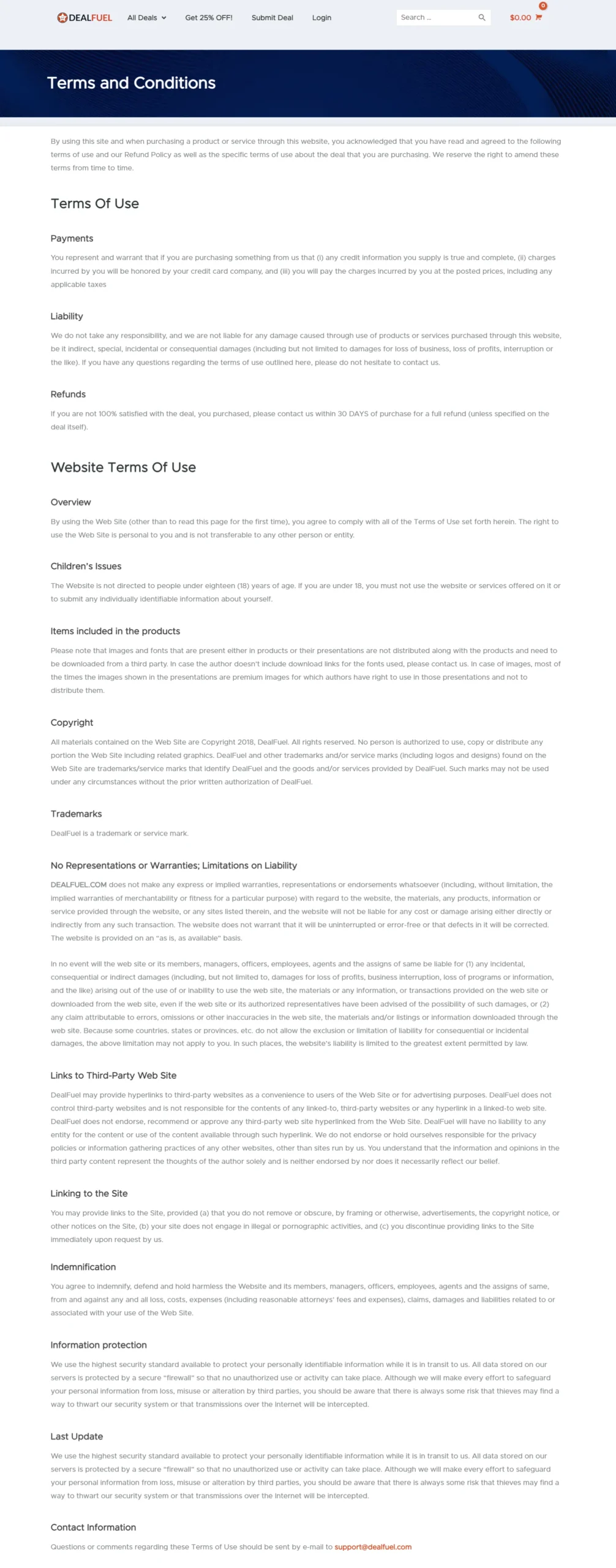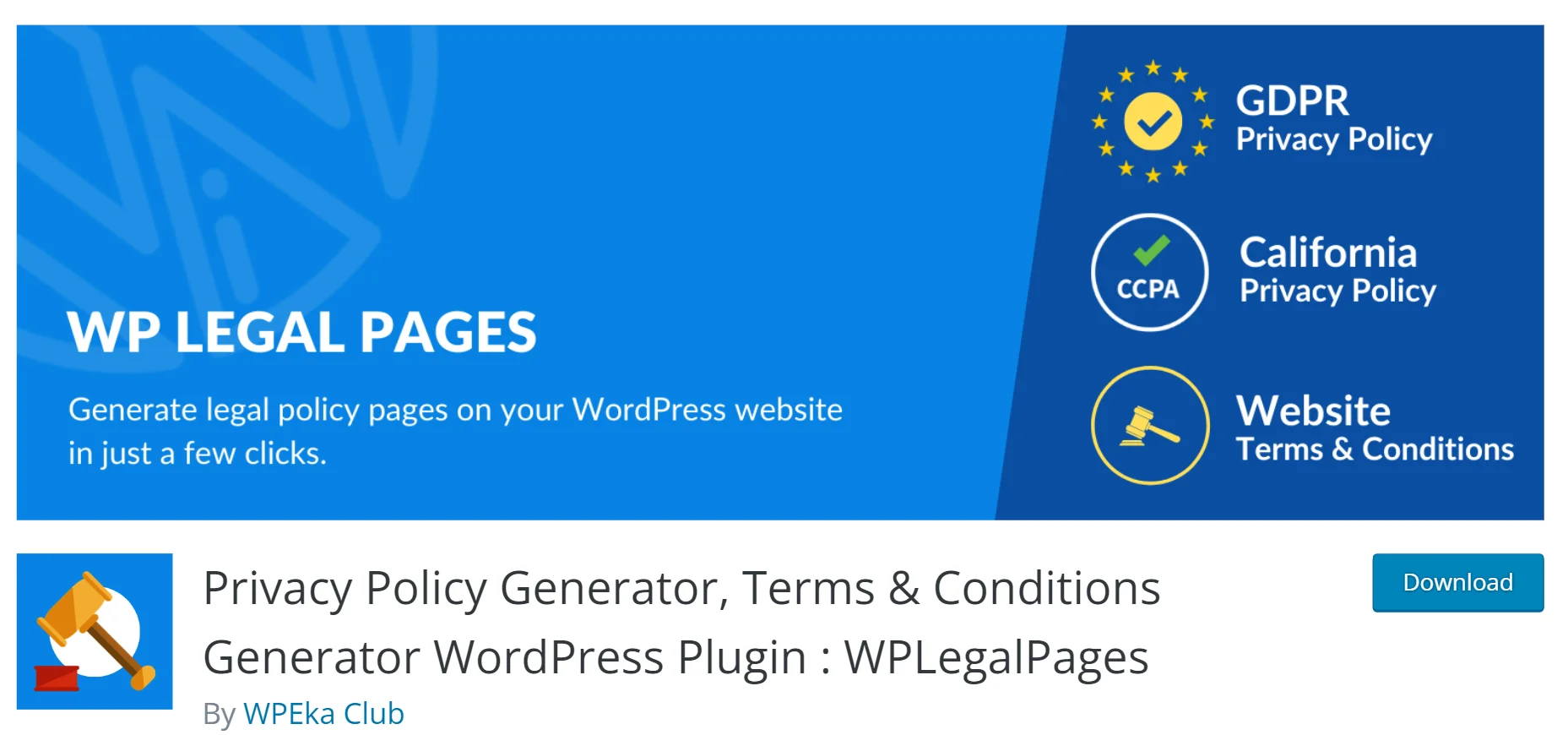Privacy Policy vs Terms And Conditions – A Detailed Guide

Do you want to know the differences between the privacy policy and the terms and conditions document?
A privacy policy is a written document that tells users how the website collects, uses, and protects their information. Terms and conditions are a legal agreement between a user and the website owner. It outlines the responsibilities and rights of both parties while using the website.
Both the Privacy Policy and Terms and Conditions are crucial for websites that handle user data or permit account creation.
This article will explain the difference between a privacy policy and a terms and conditions document and discuss their individual differences. It will also help you, as a website owner, understand what goes into each policy.
So, let’s dive right in.
What is Privacy Policy?
A privacy policy for a website is a legal agreement that informs users about their data rights, such as the right to delete and outlines how their personal information is handled.
It provides details about personal data collected, the parties with whom the data is shared, and the storage methods.
If you gather and use a user’s personal data, you must write a privacy policy and make it available to users. This applies to both desktop and mobile applications. Ideally, the privacy policy should be made available to them before they visit your website or application.
Personal information includes names, email addresses, mailing addresses, Date of Birth, and other information that can be used to identify a person.
The General Data Protection Regulation (GDPR) and the California Consumer Privacy Act (CCPA) require privacy policies. This country-wide law mandates that US companies that gather personal data from customers in California have a policy that conforms to the CalOPPA law.
A privacy policy requires the following to be disclosed by a business.
- What private data is gathered via a website or app?
- Why is this information being collected?
- How will the business or any third parties use the information?
In this comparison of privacy policy vs terms and conditions, many countries have GDPR &CCPA -like data privacy laws. Laws such as Lei Geral de Proteçao de Dados (LGPD), Personal Information Protection and Electronic Documents Act (PIPEDA), Personal Information Protection Law (PIPL), Australian Privacy Principles (APPs), and many more such laws.
Privacy Policy Example
We will share a privacy policy sample to help you better understand how to write one and what should be included in it.

WPeka’s GDPR privacy policy sample mentions what data it collects, how it collects and uses the collected information, and, most importantly, how it deletes the collected data and what data protection rights users have.
What are the Terms and Conditions?
A Terms and Conditions, also known as a Terms of Service (TOS) or Terms of Use (TOU). It is a legally binding contract outlining the guidelines for using a website or mobile application.
The terms and Conditions usually cover various topics, such as copyrights, account deactivation, invoicing and subscriptions, uses of the platform, and various disclaimers. These sections clarify users’ rules and guidelines when using the website or app.
Comparing privacy policy vs terms and conditions, we understood that privacy policies are required on the website according to the laws. Unlike a privacy policy, a T&C agreement is not required by law, but it’s highly recommended that you have one.
A T&C document on your website can prevent clashes with your website or mobile app and limit your liability as an online business owner.
Terms and Conditions Example
Here is an example of a terms and conditions template.

The Dealfuel website’s terms and conditions template mentions copyright, trademark, Limitations on Liability, Links to Third-Party Web Site, and many more.
Privacy Policy vs Terms and Conditions Differences
This section will explain the critical difference between a privacy policy vs terms and conditions for business owners.
The Privacy Policy protects users’ personal information, while the Terms and Conditions outline the guidelines for using your website. Together, these documents form the basis for rights protection on the website.
Your practices for collecting, using, and safeguarding user data are outlined in your privacy policies. The legal agreements between your service and its users, on the other hand, are outlined in the Terms and Conditions.
Let’s examine the difference between privacy policy and terms and conditions more closely.
| Privacy Policies | Terms and Conditions |
| Are recommended by law | Not required by law |
| Regulated by law | Directly regulated by the business owner |
| Written with the user’s privacy in mind | Composed to safeguard both the company’s rights and its environment. |
| Describe the user’s rights about the privacy of their data and how it will be gathered and utilized. | Describe the terms of the owner’s copyright, fair use, and other intellectual property rights. |
| Describe user’s rights to access and remove their personal data. | Describe how to stop or terminate a customer subscription or account. |
| Provide details on international data transfers. | Include terms about international payments and shipments and more. |
| Is an agreement to gather, handle, and utilize data | Are a collection of behavior guidelines and service standards |
Are Both Privacy Policy and Terms and Conditions Required?
It’s generally recommended that your website or app have a privacy policy and a terms and conditions agreement to give it credibility.
But are you aware if both are necessary? When legally only a privacy policy is required.
In some circumstances, you might need only a privacy policy or both on some websites.
The following are justifications for whether you require a terms and conditions agreement, a privacy policy, or both.
When is a Privacy Policy Necessary?
Privacy policies are required more frequently due to various regional privacy laws. If you operate in a location where local data privacy regulations apply, your website, app, or user base will need a privacy policy.
Additionally, you must provide a privacy policy if your website or app collects and uses users’ personal data or sends data to external parties, particularly overseas.
You will need a privacy policy if you want your users to interact with your website or app.
When Do You Need Terms and Conditions?
Creating terms and conditions is an important step when setting up your website, even if it is not legally required. When do you require:
- If you offer a subscription service or run an online store.
- If you want people to register on your website or app.
- If you have rules that you want users to abide by.
- If you want to limit your liability.
- If your website or app has a community component.
- Or if you wish to protect your intellectual property, such as copyright.
When Do You Need Both (Privacy Policy and Terms and Conditions)
If you are planning to offer a service or membership that requires user registration, it is essential to have a privacy policy and terms and conditions agreement in place.
This will help you minimize legal liability and maintain compliance with relevant laws and regulations.
Moreover, having these two documents will enable you to establish open and honest communication with your users and give your website more legitimacy and reliability.
If you offer a subscription service that tracks users’ payment information, having a privacy policy and terms and conditions agreement is even more crucial.
How to Generate Privacy Policy and Terms and Conditions?

WP Legal Pages specializes in generating terms and conditions and privacy policies for websites. With WP Legal Pages’ free privacy policy generator, you can create a unique privacy policy for your website. Additionally, the plugin also provides 30+ other website legal pages, including the terms and conditions document.
With the large collection of pre-made policy templates, all you need to do is provide your information and publish the legal page.
Moreover, the user-friendly interface of the plugin makes it easy to change the policy according to your company’s needs.
Overall, the WP Legal Pages plugin makes creating legal pages like privacy policies, terms of use, refund policies, legal disclaimers, privacy policies, copyright language, and affiliate disclosures easier.
Conclusion
This review of the privacy policy vs terms and conditions shows that both policies play a key role in their own sense. As per the global privacy laws, only a privacy policy is essential.
Your company’s intellectual property needs to be secured, user privacy needs to be maintained, and you need to be as legally liable as possible. Maintaining legal compliance is crucial, but you also want to ensure you’re covered in legal issues.
Hence, we recommend that you keep both privacy policy and terms and conditions documents on your website. To create both documents easily, you can use the WP Legal Pages plugin to help you create legal policies within minutes.
The best part about using the plugin is it has more than 35+ ready-to-use templates and is ideal for beginners as well as experienced people.
If you enjoyed reading this article, check out our other articles:
- Best Terms and Conditions Generator
- Iubenda Alternative – A Comprehensive Guide
- TermsFeed Alternatives- A Comprehensive Review
Grab the WP Legal Pages plugin to make your website compliant with any privacy law.


Leave a Reply